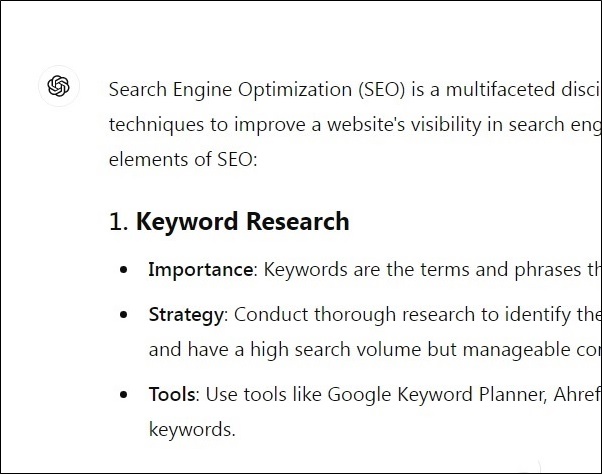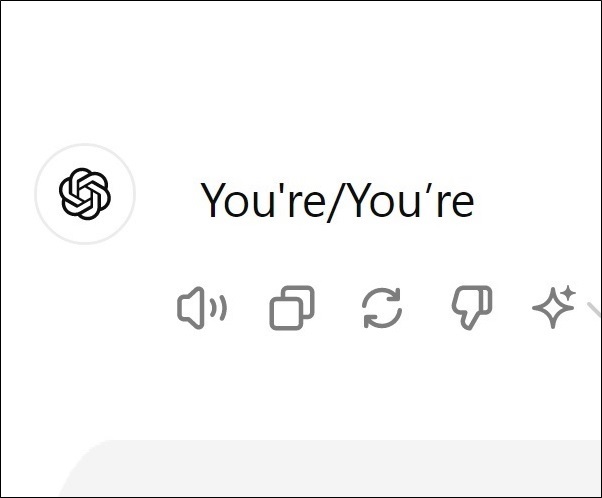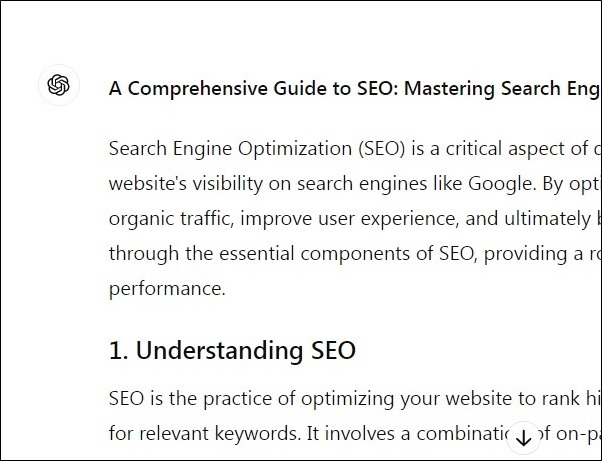If the endgame for artificial intelligence is to make it indistinguishable from humans, I think we’re already there in terms of AI having its own quirks, habits, and preferences just like humans do.
I don’t know if it’s by design, but ChatGPT in particular has some very noticeable ChatGPTisms, especially when you ask it to do a lot of writing—anyone working in content production will vouch for the accuracy of this list!

On one hand, it’s a bit depressing that this much-hyped chatbot isn’t a bottomless well of originality. On the other hand, it’s an interesting phenomenon that makes you wonder why it has its own way of doing things.
As for right now, it’s time to find out what the top 10 worst ChatGPTisms are.
1. Embarking on journeys
I want to delete “embark” from ChatGPT’s vocabulary. Not because I have anything against the word specifically, but to prevent the utter tosh that stems from it:
- Embark on a journey
- Embark on an adventure
- Embark on an odyssey
- Embark on an exploration
These signature ChatGPT phrases are often present in the introductory section of its output to hook in the reader.
2. Lists with bold text
Formatting is another area where ChatGPT likes to leave a distinct mark. Whenever the chatbot produces a list, it nearly always uses bold text before a colon. It looks really ugly in my opinion, especially in long lists with lots of bolded text.

3. Elevating everything
This powerful AI chatbot needs to allocate more power to the thesaurus-izing of overused words. Our dataset of 50,000 ChatGPT responses found that “elevate” is a super common word and we think we know the reasons why.
4. Delving into everything
I already warned you about the formulaic nature of ChatGPT-written introductions and the problem goes way beyond “embarking on a journey”—”delve” and “delving into” are right up there among the chatbot’s most used words and phrases respectively. You can read my thoughts on why delve is a common ChatGPT word if your interest has been piqued.
5. Inconsistent punctuation
I think this ChatGPTism is barely perceptible to the vast majority, but still worth pointing out in case you are meticulous when it comes to punctuation or if you write code. Sometimes the chatbot randomly deviates from the norm and uses a curly apostrophe instead of a straight apostrophe.

Everyone knows that consistency is key in the realm of stylistic grammar, but apparently ChatGPT didn’t get the memo, because it will switch from curly to straight and vice-versa within the same body of text.
6. “Whether you’re X or Y”
For instructional texts, you can always count on the chatbot to set up a comparison between various groups to broaden the target audience. For example, a guide to fishing will open with something along the lines of “Whether you’re a seasoned fisherman or a beginner…”
7. Embracing everything
Yet another display of ChatGPT’s overwhelming preference for certain words. It clearly has some attachment issues because the chatbot is forever telling users to embrace technology, embrace change, embrace diversity, embrace this, embrace that, embrace E-V-E-R-Y-T-H-I-N-G!
8. Exaggerated titles
If you’re a content creator publishing AI-generated articles, this one is the worst ChatGPTism of them all, because it can seriously mess up your search engine rankings.

ChatGPT has an awful habit of writing short 500-word guides and giving them misleading titles like “The Ultimate Guide” or “A Comprehensive Guide”—please don’t lie to Google about the scope and depth of your content otherwise you’re going to have an SEO crisis on your hands.
9. Likening everything to tapestry
I totally get that metaphors are important for injecting life into your writing, but there’s a time and place for them. At the very least, ChatGPT should be able to refrain from using the same damn metaphor over and over again.
Alas, the ChatGPT community has to endure unremarkable prose involving tapestry e.g. “Tuscany is a tapestry of rolling hills, vibrant vineyards, and historic towns”.
10. Self-referencing
Another one for the content creators and article writers out there.
ChatGPT does this really amateurish thing in the intro of its articles and guides where it inserts phrases like “In this article, we will explore…” or “This guide aims to…”. It’s overly simplistic, redundant, and ruins the natural flow when you refer to the document itself.